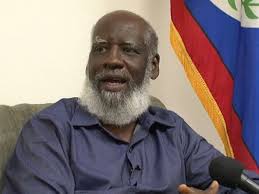July 4, 2016. 3:40 p.m. CST.
By Aaron Humes: Minister of Foreign Affairs Honorable Wilfred Elrington; CEO in the Ministry of Foreign Affairs Lawrence Sylvestre; and Belize’s Ambassador to the Caribbean Community (CARICOM), His Excellency Daniel Gutierrez, are representing Belize this evening at the meeting of heads of Government of CARICOM taking place in Georgetown, Guyana, with an opening ceremony at the Pegasus Hotel. 
Government sources confirm that Prime Minister Right Honorable Dean Barrow chose not to participate in this meeting due to unspecified, quote, “pressing issues at home,” end quote.
P.M. Barrow officially also gives up his rotating chairmanship of CARICOM which he had held since the start of 2016.
CARICOM officials are meeting against the background of a number of threats to the region’s financial and economic stability.
Chief among these are the threats posed by international banks limiting or terminating their relationships with regional financial institutions, and the yet to be determined implications of the British decision to leave the European Union (EU), a key partner in the Community’s development. The Brexit vote has sent Britain and the rest of the world into a tailspin. The pound sterling fell in value to the lowest in 30 years, and international financial markets took a downturn, as the implications hit home.
The Caribbean is not immune from the potential fallout, and economists and politicians alike are assessing the situation. The majority of CARICOM member states were former colonies of Britain, which was a key ally of the region within the EU.
While some have adopted a wait and see stance, confident that any domino effect will not occur in the short-term, others are predicting immediate consequences and want the CARICOM member states to appreciate the value of regional integration and band firmly together to chart the way forward.
From prime ministers, many of whom are their countries’ finance ministers, to the heads of regional banking institutions, the assessment of de-risking scenario is that it is unfair and the predictions about its impact on the region are dire, and the call to action is extremely urgent.
Transfers of remittances, cheque payments, international trade and the facilitation of credit card settlements for local clients are among the areas that have been affected by de-risking.
The Caribbean Development Bank (CDB) quoted a November World Bank survey as saying that about 75 percent of international banks have experienced a reduction in correspondent banking services, with the Caribbean being the worst affected.
Reports are that eight financial institutions in Barbados, about seven in Jamaica and five here in Belize and others in Antigua and Barbuda, Montserrat and other member states have been affected by a termination of or restriction in correspondent banking relationship.
The heads of government, at their intersessional meeting held in February, decided to establish a high level advocacy team headed by Antigua and Barbuda prime minister, Gaston Browne. Browne’s mission is to represent the Community’s interest at all levels, including with the United Nations, the World Trade Organisation (WTO), and the United States Congress. A meeting has since been held with US Treasury and State Department officials in April 2016 and the matter was also discussed with the UK foreign secretary.
A solution proffered by P.M. Barrow was the pooling of business to achieve “critical mass” and to make it worthwhile for the correspondent banks that are weighing risks and returns. The governors of regional central banks, and the committee of ministers of finance on correspondent banking, that the heads of government have established, will consider the modalities of that recommendation.
Further action on correspondent banking will be determined by the reports presented to the heads of government during the two-day conference.
Heads will also consider the border issues between Belize and Guatemala and hosts Guyana and Venezuela. The Community has consistently expressed its full commitment to the preservation of the territorial integrity of all member states. The Heads will also revisit the plight of persons of Haitian descent rendered stateless in the Dominican Republic, as CARICOM continues to advocate for a resolution to the crisis which affects approximately a quarter million Dominicans of Haitian descent and Haitian migrants in the Dominican Republic.
Belize hosted the last Inter-Sessional meeting of CARICOM Heads of Government in Placencia in February.
Guyanese President David Granger and newly re-appointed CARICOM Secretary General Ambassador Irwin LaRocque are the formal hosts.
© 2016, www.breakingbelizenews.com. This article is the copyrighted property of Belize Media Group. Written permission must be obtained before reprint in online or print media. REPRINTING CONTENT WITHOUT PERMISSION AND/OR PAYMENT IS THEFT AND PUNISHABLE BY LAW.